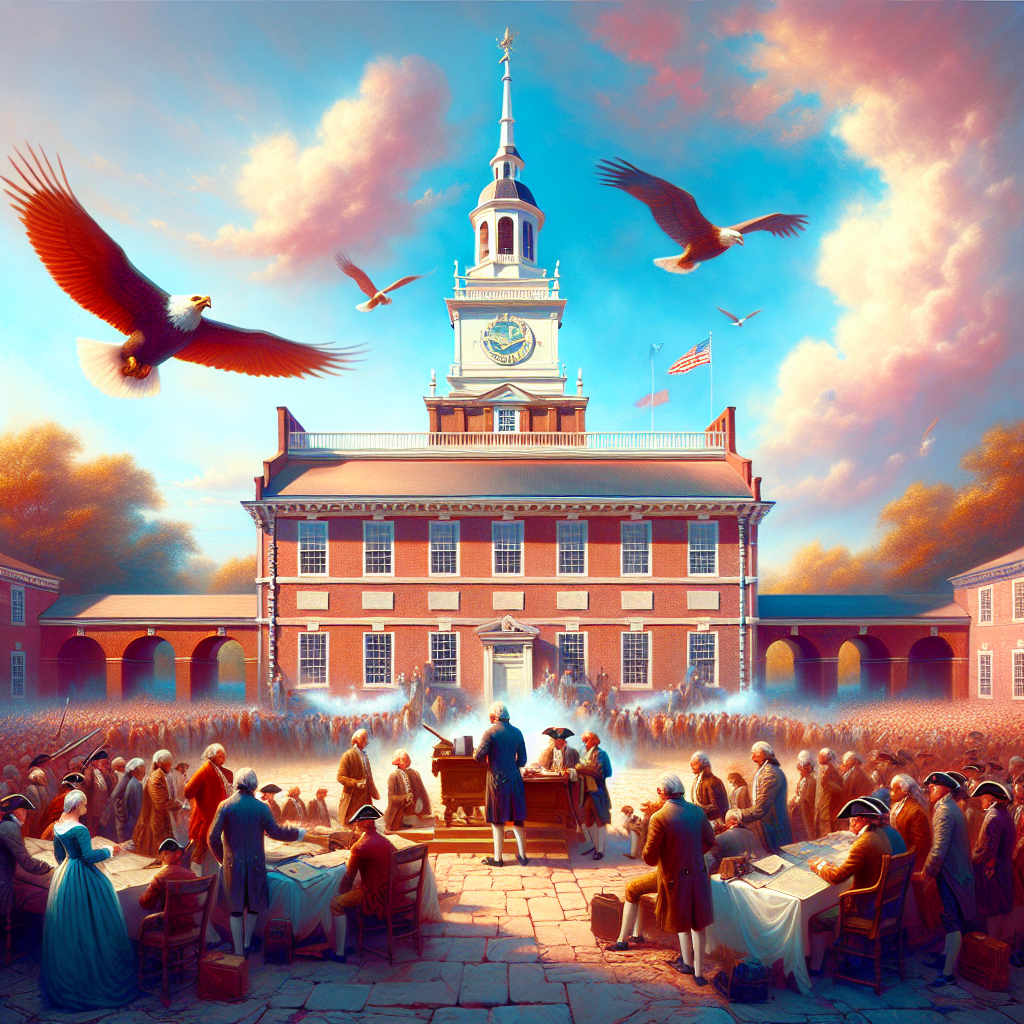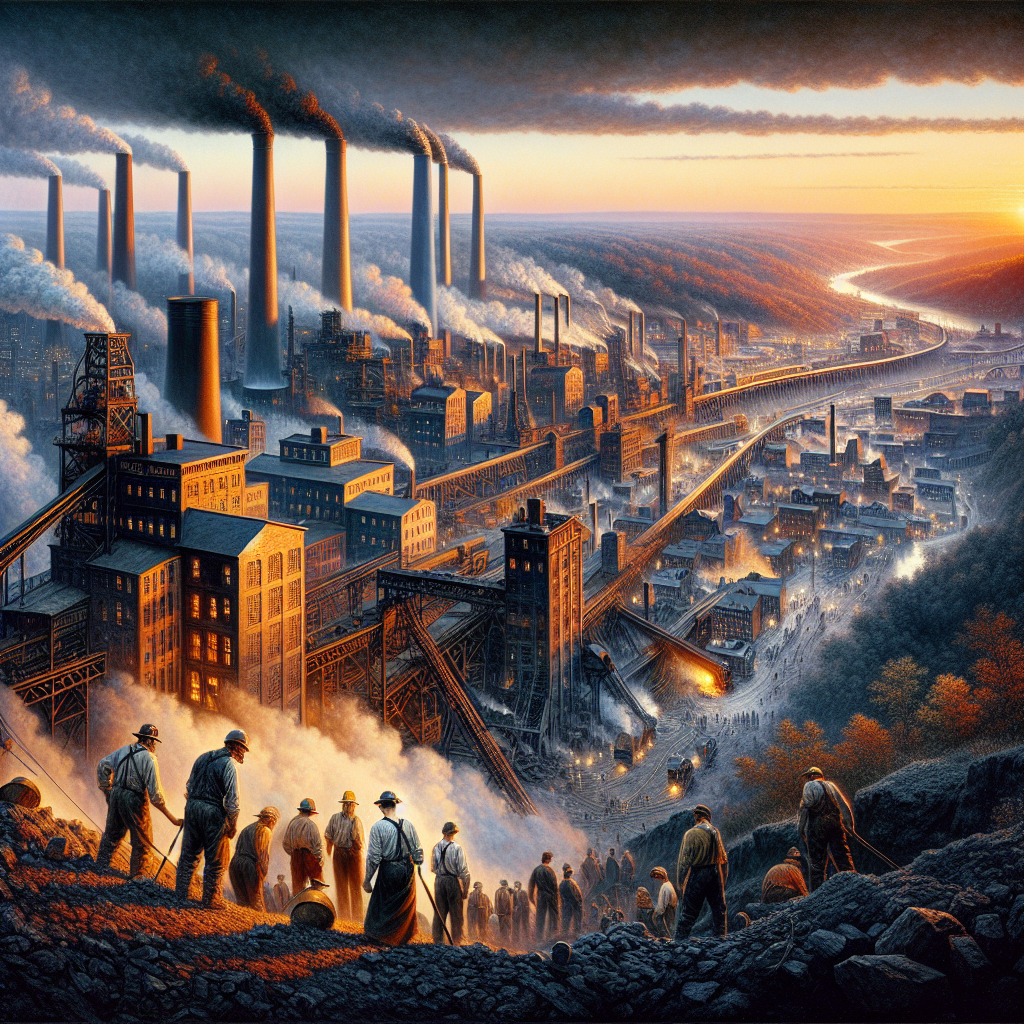Exploring Pennsylvania’s Role in American History
Pennsylvania, often referred to as the Keystone State, holds a unique place in the tapestry of American history. From its pivotal role in the founding of the United States to its contributions during the Industrial Revolution, Pennsylvania’s impact on the nation is profound and enduring. Join me on a journey through time as we explore the rich historical legacy of this remarkable state.
The Founding of a Nation
Few states can boast as significant a role in American history as Pennsylvania. Philadelphia, the state’s largest city, was the birthplace of America’s independence. In 1776, the Second Continental Congress convened at the Pennsylvania State House, now known as Independence Hall, to draft and sign the Declaration of Independence. This momentous event marked the official start of the American Revolution, setting the stage for a new nation built on principles of liberty and democracy.

Just a few years later, in 1787, Pennsylvania once again became the epicenter of historical change when delegates gathered in Philadelphia to draft the United States Constitution. This document, which still governs the nation today, was crafted with intense debate and collaboration, cementing Pennsylvania’s reputation as a cradle of American governance.
Industrial Powerhouse
As America grew, so did Pennsylvania’s importance. The 19th century saw the state transform into an industrial powerhouse, driving economic growth and innovation. The discovery of coal in the Appalachian region fueled the burgeoning steel industry, with cities like Pittsburgh emerging as global leaders in steel production. Pennsylvania’s natural resources and strategic location made it a hub for the railroads, which were crucial for transporting goods across the nation.

The state’s industrial might also played a significant role during the Civil War. Pennsylvania not only provided resources and manpower but also served as a critical battleground. The Battle of Gettysburg, one of the war’s most significant conflicts, took place on Pennsylvania soil. This decisive Union victory turned the tide of the war and is remembered as a turning point in American history.
Cultural and Educational Contributions
Beyond industry and politics, Pennsylvania has made substantial contributions to the cultural and educational landscape of the United States. The state is home to some of the country’s oldest and most prestigious institutions of higher learning, including the University of Pennsylvania, founded by Benjamin Franklin in 1740.
Pennsylvania has also been a beacon of cultural diversity and artistic expression. Philadelphia, with its rich tapestry of neighborhoods and communities, has cultivated a thriving arts scene, from the renowned Philadelphia Orchestra to its vibrant murals adorning city streets. Museums like the Philadelphia Museum of Art and the Carnegie Museum of Art in Pittsburgh showcase Pennsylvania’s commitment to preserving and promoting the arts.
Modern-Day Legacy
Today, Pennsylvania continues to play a vital role in the fabric of the United States. Its diverse economy includes sectors such as healthcare, education, and technology, ensuring that the state remains a dynamic force in the 21st century. Moreover, Pennsylvania’s political landscape often captures national attention, with its status as a swing state making it a key player in presidential elections.
The state’s natural beauty, from the rolling hills of the Amish countryside to the majestic Pocono Mountains, makes it a popular destination for tourists and nature enthusiasts alike. Pennsylvania’s blend of historical significance, cultural richness, and natural splendor ensures that it remains a beloved part of the American story.
Conclusion
Exploring Pennsylvania’s role in American history reveals a state that has consistently been at the forefront of national developments. From the founding of the nation to its industrial age achievements, and its ongoing contributions to culture and innovation, Pennsylvania has left an indelible mark on the United States. As we reflect on its past, we can appreciate the ways in which Pennsylvania continues to shape the future.
FAQs
Q: Why is Pennsylvania called the “Keystone State”?
A: Pennsylvania is called the “Keystone State” because of its central role in the founding of the United States. Like a keystone in architecture, Pennsylvania was crucial in holding together the arch of the fledgling nation.
Q: What are some must-visit historical sites in Pennsylvania?
A: Key historical sites include Independence Hall and the Liberty Bell in Philadelphia, the Gettysburg National Military Park, and the Pennsylvania State Capitol in Harrisburg, among many others.
Q: How did Pennsylvania contribute to the Industrial Revolution?
A: Pennsylvania’s rich deposits of coal and iron ore, along with its strategic location, helped fuel the steel industry. Cities like Pittsburgh became centers of industrial innovation, contributing significantly to the Industrial Revolution.
